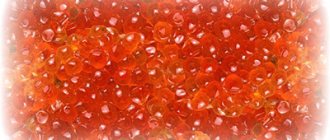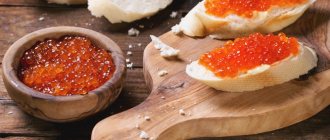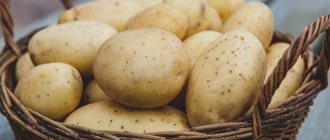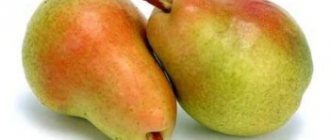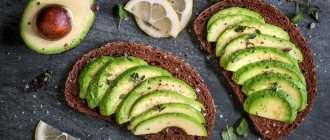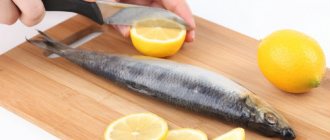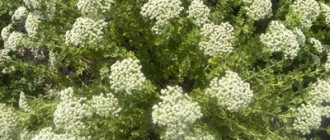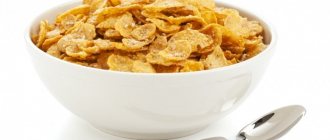After the birth of a child, every mother has questions regarding nutrition during breastfeeding. These questions are natural, because not a single mother in the world wants to harm her baby with products that have zero benefit.
Doctors recommend following a strict diet during breastfeeding. The list of allowed foods is small, but don’t be upset, this list will be replenished as the baby’s digestive system begins to produce the required amount of enzymes.
Is it possible to eat this snack during breastfeeding?
Squash caviar is on the list of allowed dishes, because... Zucchini itself is a storehouse of nutrients and vitamins:
- vitamin PP - will help you recover faster in the postpartum period;
- vitamin C - tones up the immune system;
- vitamin A - take care of the condition of the skin and hair of the baby and mother;
- four B vitamins (thiamine, folic acid, riboflavin and panthenol) - normalize the functioning of the nervous system, help the metabolism function properly, and the body produce energy by burning fats;
- and microelements such as magnesium, iron, potassium, calcium contribute to the development of the baby’s bone system and increase hemoglobin.
From what month?
Squash caviar will not affect lactation at all.
IMPORTANT! You can try it for the first time no earlier than your baby reaches 3 months of age!
When breastfeeding, a nursing mother requires certain caution:
- Caviar must be homemade.
- The volume of the first serving is 1-2 tablespoons. Use in the morning 30-40 minutes before feeding.
- Frequency of presence in the diet is once or twice a week.
Zucchini can weaken the baby's tummy and lead to colic, and the accompanying ingredients, such as tomatoes, sweet peppers, carrots, can cause an allergic reaction.
Therefore, it is advisable to first introduce all the other components of caviar into the diet, one by one, and look at the reaction of the child’s body; if there are no signs of allergy, then you can safely introduce squash caviar as a complete dish.
If a woman consumes caviar before and during pregnancy, then the manifestation of allergic reactions in the child is minimized.
How to eat zucchini
Since we exclude hot spices and all fried foods from a nursing mother’s diet (fried food threatens to disrupt the baby’s pancreas), zucchini can be consumed as part of stews or other stews. Avoid raw zucchini, including juice, as it is high in acid.
Today there are many types of kitchen appliances with which you can prepare healthy and tasty food. For example, with a slow cooker or steamer, you can steam the zucchini by adding other tasty and healthy vegetables. Can be cooked in the oven and better without oil. One of the most popular zucchini dishes in our country is caviar. It is not only healthy, but also very tasty. It is often prepared independently by owners of summer cottages and garden plots after harvesting. Such squash caviar can be present in the diet of nursing mothers. The naturalness and safety of this product is guaranteed. If you decide to treat yourself to caviar purchased in a store, carefully study its composition.
Let's answer the question: Is goat's milk worth it or not during breastfeeding?
Can it be in a child’s diet?
Squash caviar is one of the most popular products in baby food. It is a must in a baby's diet. The main value of caviar is its fiber content, which will improve intestinal motility, and this is an important stage in the development of the proper functioning of the baby’s gastrointestinal tract.
For a diabetic child, squash caviar should be the main part of the diet, because... Zucchini contains slow carbohydrates, which will prevent a rapid jump in blood glucose.
At what age should it be included in complementary feeding/food?
You can start giving squash caviar to your child only when all its ingredients have been included separately in complementary foods. It is best to use homemade squash caviar and exclude store-bought caviar from your diet altogether.
Before you cook zucchini for caviar, taste it - an overripe vegetable is bitter and this bitterness will not go away after cooking. It is better to choose zucchini - they cook faster, are more tender and tastier.
Like any other complementary food, squash caviar is given in a test dose to introduce the baby’s intestines to a new product and see how the body reacts - start with 1-2 tsp. in one go. Next, monitor the child’s well-being for two days.
If the body responds well (no indigestion or symptoms of an allergic reaction), within a month from the start of complementary feeding, increase the dose of caviar to 50 grams.
How to prepare healthy squash caviar at home
The vegetable snack recipe is quite simple. Prepare 0.5 kg of tomatoes, carrots, onions and 2 kg of zucchini. Vegetables must be peeled, washed and chopped either in a meat grinder or blender. Pour the resulting mass into a saucepan, adding 100 ml of vegetable oil.
Simmer the mixture over low heat for 60 minutes. After this, add three tbsp. spoons of vinegar, two or three tbsp. spoons of homemade tomato paste, tbsp. a spoonful of salt, 200 g of sugar and season with ground black pepper. Stir and cook for another 15 minutes. After this, cool and transfer to a glass container. Store in the refrigerator for no more than three days.
- Related Posts
- Pizza while breastfeeding: recipes
- The magical power of sesame during breastfeeding for mother and baby's health
- Can nursing mothers eat lettuce leaves?
« Previous entry
Product features: benefit or harm for mother and baby
After pregnancy, many women have an urgent question about returning to their former figure. And squash caviar will become an indispensable assistant in this matter. Its total energy value per 100 grams is only 70 - 100 kcal.
The peculiarity of zucchini is its water content - it is about 95%, so it has a diuretic effect, which means that by consuming zucchini caviar you are protected from the appearance of swelling. Also, squash caviar, as an independent dish, promotes the rapid removal of toxins from the body, has a beneficial effect on the gastrointestinal tract, normalizes metabolism, in particular helps with postpartum atonic constipation.
But fried zucchini will cause harm, because... when absorbing oil, they become not only very high in calories, but also difficult for the stomach to digest. Therefore, the best option for this vegetable is homemade squash caviar.
Store-bought: how to choose and what to focus on?
The canned type of squash caviar is excluded from the diet of a nursing mother. Zucchini grown in greenhouses contains nitrates and other chemical fertilizers.
ATTENTION! Chemical substances entering the baby’s organs through the circulatory system can cause disruption in the development of the child’s body.
The composition of store-bought caviar includes:
- preservatives (including acetic acid);
- dyes;
- artificial flavors;
- emulsifiers.
The use of such a product will negatively affect the child’s imperfect digestive system and will bring a lot of trouble to eliminate the consequences.
You shouldn’t take risks with a canned, store-bought product, especially since this dish is so easy to prepare at home.
Homemade recipe
To prepare squash caviar at home:
- Take 2 kg of zucchini, half a kilo of tomatoes, onions and carrots.
- Pass the vegetables through a meat grinder or chop with a blender.
- Pour the resulting mixture into a saucepan or saucepan and add 100 ml of purified vegetable oil (it is harmless in this amount).
- Simmer over low heat for an hour.
- Then add 50 ml of table vinegar, salt and ground black pepper to taste.
- Simmer, stirring for another 15 minutes.
- Allow the finished mixture to cool, then transfer to a glass container.
- This dish should be stored in the refrigerator for no more than 3 days.
Is it possible to eat zucchini or caviar from them while breastfeeding?
Vegetables are healthy and necessary for every person. Among them, zucchini is no less useful. Before including any product on the menu, a nursing woman thinks about the benefits and harm that it can bring. You can eat zucchini while breastfeeding, and in some cases it is even necessary. To understand the benefits of this food product, you should study its properties and composition.
What benefits does a nursing mother get?
This vegetable is low in calories (about 23 kcal per 100 g), so you can eat it without worrying about your figure. It is 95% water. In addition, it contains many vitamins and microelements. It contains organic acids and vegetable protein.
- The vitamins contained in zucchini help a woman recover after childbirth and restore beauty to her skin, nails and hair.
- Helps activate the body's immune system.
- Dietary fiber cleanses the body of toxins.
- Improves intestinal function.
- Helps remove excess fluid.
- Prevents the accumulation of bad cholesterol.
- With the help of potassium and magnesium, the heart muscle is strengthened.
- Lowers blood pressure.
- By consuming this vegetable, you can prevent the occurrence of anemia. This is due to the high iron content.
To preserve all the nutrients of a vegetable in full, it should be subjected to heat treatment as little as possible. The ideal solution would be about 15 minutes of stewing or baking in the oven.
What you need to consider when introducing zucchini into your diet
- The product is administered in small portions, after which the child’s condition is monitored. You should be alert to the appearance of loose stools, rashes, increased gas formation, and frequent regurgitation. All these symptoms are a reason to stop using this product.
- It’s better if it’s zucchini from your own garden. It is important to ensure that the vegetable is ripe and fresh and has a intact shell.
- Before use, the vegetable should be thoroughly washed and rinsed with boiling water.
- Excessive consumption of the product leads to loss of fluid, and with it vitamins.
- You should eat about 500 g of vegetables per day, including zucchini.
Eating zucchini is not recommended for problems such as:
The formula for losing weight is simple - burn more calories than you take into your body. The mistake of all those who lose weight! Girls, just lose weight, here’s the recipe: before breakfast... Read more...
- kidney disease;
- stomach diseases;
- inflammatory processes in the intestinal tract;
- disturbances in the functioning of the gallbladder.
In what form should the product be consumed?
It is better to stew or boil zucchini when breastfeeding. A nursing woman should not eat fried vegetables or add spices when cooking. Pickled and canned zucchini are useless for the body. The vegetable should not be consumed in its raw state - for example, in the form of juice.
Zucchini can be frozen, for which you choose a product of medium ripeness. First you need to wash it and cut it into rings. You can put it in bags or containers.
With this vegetable you can diversify your daily menu. What dishes with the addition of zucchini are allowed for a nursing mother?
Stew. The main ingredients are various vegetables - zucchini, eggplant, tomatoes, onions, peppers. All vegetables are finely chopped and simmered over low heat. You can add a little sour cream.
Pancakes. The composition includes flour, salt, onion, egg, herbs. Vegetables need to be grated and flour and egg added to the resulting mass. Use a spoon to scoop out the mass and place it in a frying pan coated with oil.
You can prepare squash caviar. Pass the zucchini through a meat grinder (6 kg), transfer to a large container. Add a little ground pepper, salt (about 3 tablespoons), oil (about half a glass). Place the container with the contents on the fire, and after boiling, cook for another 40 minutes. Grind the resulting mass using a blender, add vinegar and chopped garlic. Cook for a few more minutes. Pour the resulting composition into jars, which must first be sterilized.
Squash caviar should be introduced into the diet after 6 months. You can eat about 150 g per day.
Each woman decides for herself which product to introduce into her diet. If in doubt, it is better to consult a pediatrician: he will not only tell you about possible problems, but also recommend how to properly prepare the product.
grudnichky.ru
Why is it dangerous?
With the correct and timely introduction of squash caviar into complementary foods, no serious problems should arise. But if the baby develops malaise, increased gas production, frequent loose stools, or mucus in the stool, you need to remove this product from the diet and consult a pediatrician.
While the single presence of clear mucus in the stool without the other symptoms listed above is a sign of fermentation in the intestines and is not a cause for concern.
IMPORTANT! An absolute contraindication to the use of squash caviar for mothers and infants is an allergy to its ingredients, acute kidney and bladder disease, or any acute gastrointestinal ailments. Hypotensive patients should take it with caution due to its ability to lower blood pressure.
Recommendations for use during lactation
When consuming squash caviar during active lactation, we mean its classic composition, which includes carrots, tomatoes and some spices. The first tasting is carried out in the first half of the day, on an empty stomach and in an amount of no more than 3 teaspoons. If there is no undesirable reaction (allergy or gastrointestinal disorder), then you can increase the portion to 150 grams per day and 400 grams per week.
Do not overdo it with the quantity; the high water content in zucchini can remove not only harmful toxins from the body, but also beneficial components such as potassium.
Squash caviar can complement dishes made from vegetables, fish and poultry. Also goes well with eggs and even cottage cheese.
The benefits of zucchini
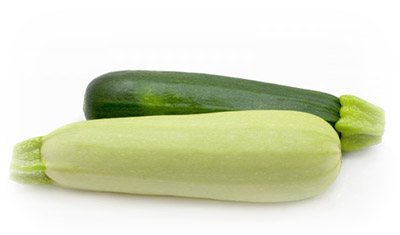
Many mothers are afraid to eat it, fearing allergic reactions or bloating in the child. There is no need to be afraid, you can and should eat zucchini. How is it useful for mother and her baby:
- contains microelements that ensure the normal functioning of human internal organs - phosphorus, calcium, magnesium, iron, etc.;
- vitamins of groups A, C, B - useful for the formation of bones, teeth, will help the mother’s body recover after pregnancy, improve the condition of hair and skin;
- contains vegetable protein and organic acids;
- has absorbent properties - removes toxins from the body, in addition, improves the functioning of the gastrointestinal tract and improves blood circulation;
- removes excess fluid from the body, which is very useful for mothers suffering from edema after childbirth, has a diuretic effect;
- due to its low calorie content, it is suitable for those who want to get rid of extra pounds, it is easily digestible;
- blocks the accumulation of cholesterol, which prevents the formation of fat deposits.
The beneficial properties of zucchini cannot be overestimated, but you should not consume it in large quantities. The ability of a vegetable to rid the body of excess fluid can wash away beneficial microelements and vitamins .
Let's answer the question: Is it possible to introduce cabbage into the diet of a nursing mother?
